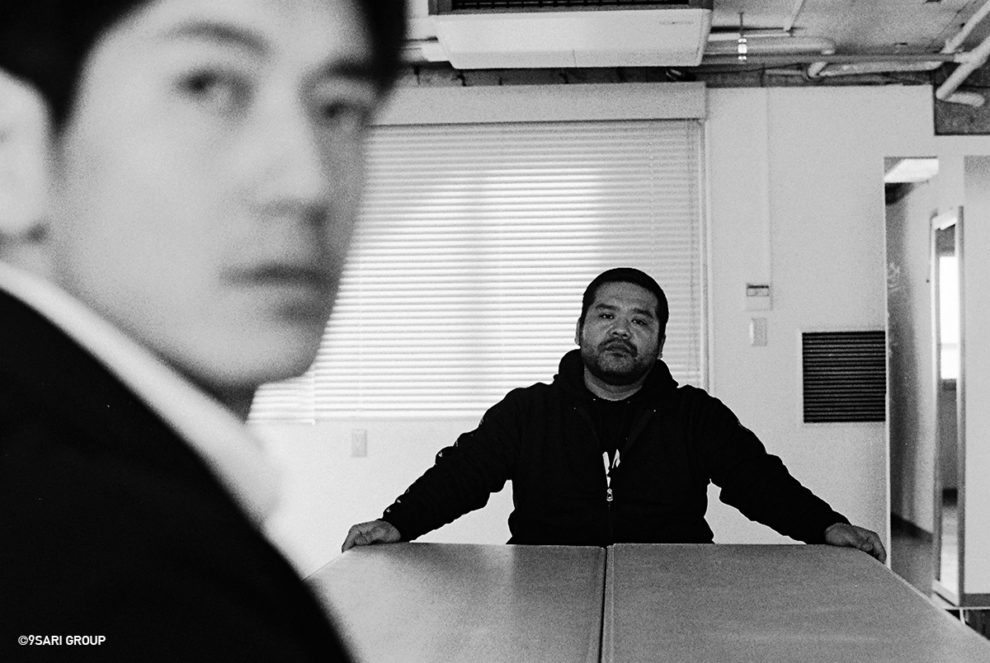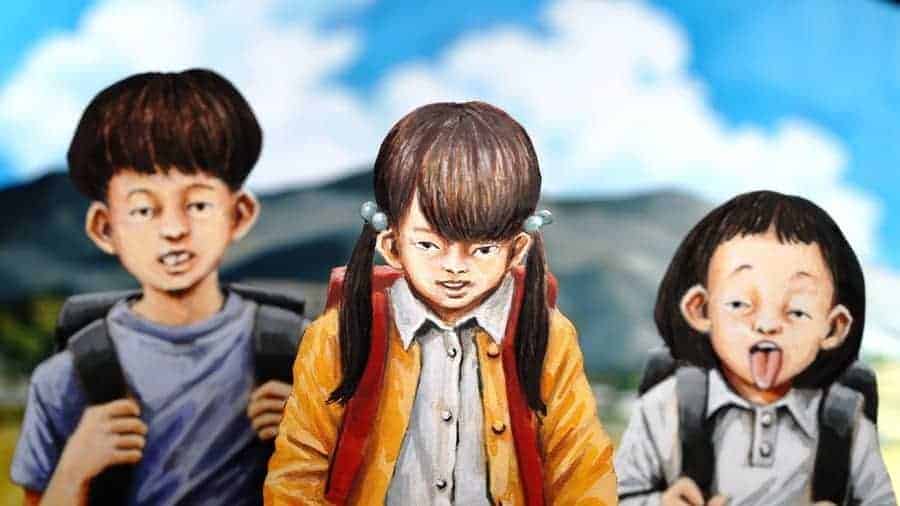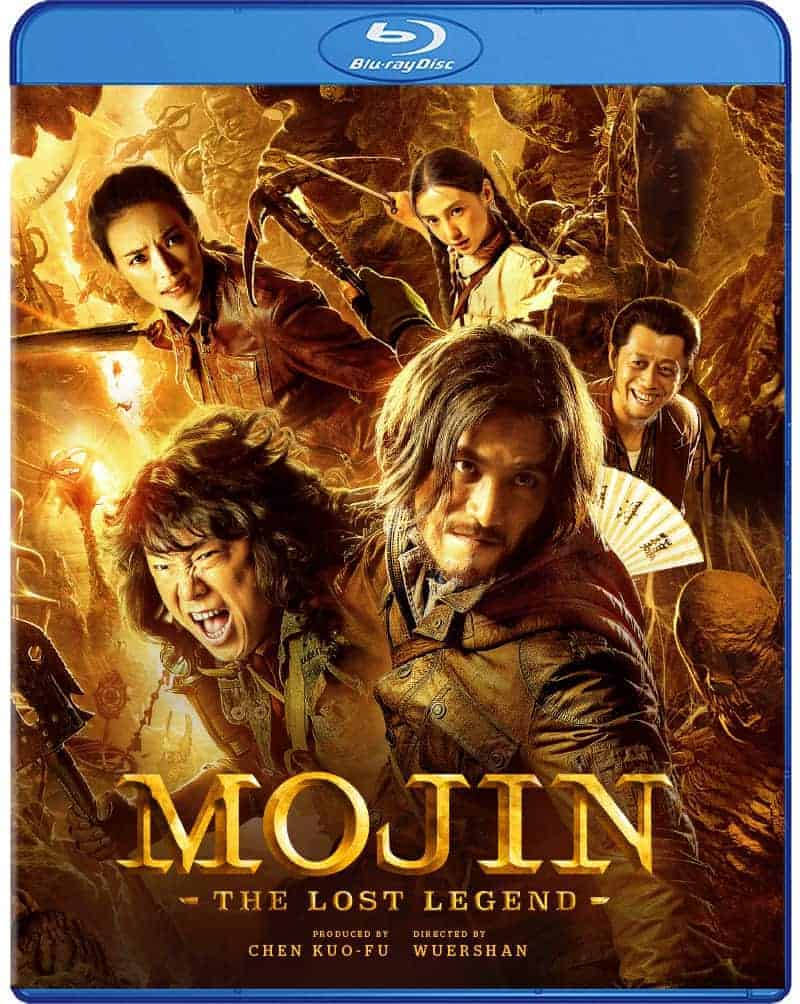As he proved with movies like “Videophobia” and “Tourism”, Daisuke Miyazaki is not afraid of taking chances with his works. “North Shinjuku 2055” however, is his most experimental to date, since it is almost completely composed of black-and-white photo stills, instead of actual movement on screen. Let us take things from the beginning though.
“North Shinjuku 2055” is screening at Osaka Asian Film Festival

The story takes place in 2055, when North Shinjuku has become a de facto closed-off community. While it is still a part of Japan, it has its own rules, history, and politics that the locals stick to fiercely, while its inhabitants also try to restrict any kind of people who do not recognize these facts, from becoming part of the area. No one knows much about how the community works, and thus a journalist has decided to investigate. Eventually, he manages to score an interview with a local leader named Mr K, who starts explaining both the history and the current situation of Shinjuku.
Truth be told, the concept of a film that is exclusively presented through black-and-white photo stills, even at 35 minutes, does not sound particularly appealing. Miyazaki, however, manages to make the whole thing work, through a number of “tricks”. The first one is the actual story of the area, which is rather appealing, as its future premises actually comment on a number of notions that characterize present-day Japan in general, as the mentality of seclusion and the distaste for any kind of outsiders are still at large in the country. Furthermore, the yakuza-like rules, the past of the area that included many foreigners, violence, rap battles, mystery, and a series of omerta-like laws, as much as Mr K's own history add much depth and appeal to the overall script. Additionally, the interaction of the two men, which resembles more and more a cat-and-mouse game as time passes, particularly as the journalist bases his opinions on rumors and Mr K tries to explain reality, adds even more to this approach.
The voices of narration, of hip hop artist Kan a.k.a. GAMI as Mr K and Tatsuya Nagayama as the journalist are also excellent, essentially providing the soundtrack of the movie, with their antithesis in tone and volume being a significant part of the entertainment the movie offers. The same applies to the use of the overall sound, with both the “urban noise” and the various tracks heard throughout, highlighting once more, Miyazaki's great taste in music, something we also saw in “Yamato (California)”, with the ending track by Naruyoshi Kikuchi being the one most staying on mind.
However, the element that truly makes a difference here is his own editing, which results in the succession of photos having an almost frantic rhythm, giving a sense of movement to an otherwise still movie, also due to the switching between images of the protagonists and the area and people of Shinjuku. This speed, along with the aforementioned audiovisual elements, create an atmosphere of almost ritualistic mystery, that also works quite well in terms of entertainment, essentially carrying the movie from beginning to end.
Despite its rather experimental approach, “North Shinjuku 2055” is a very easy-to-watch film and an overall excellent title.

















